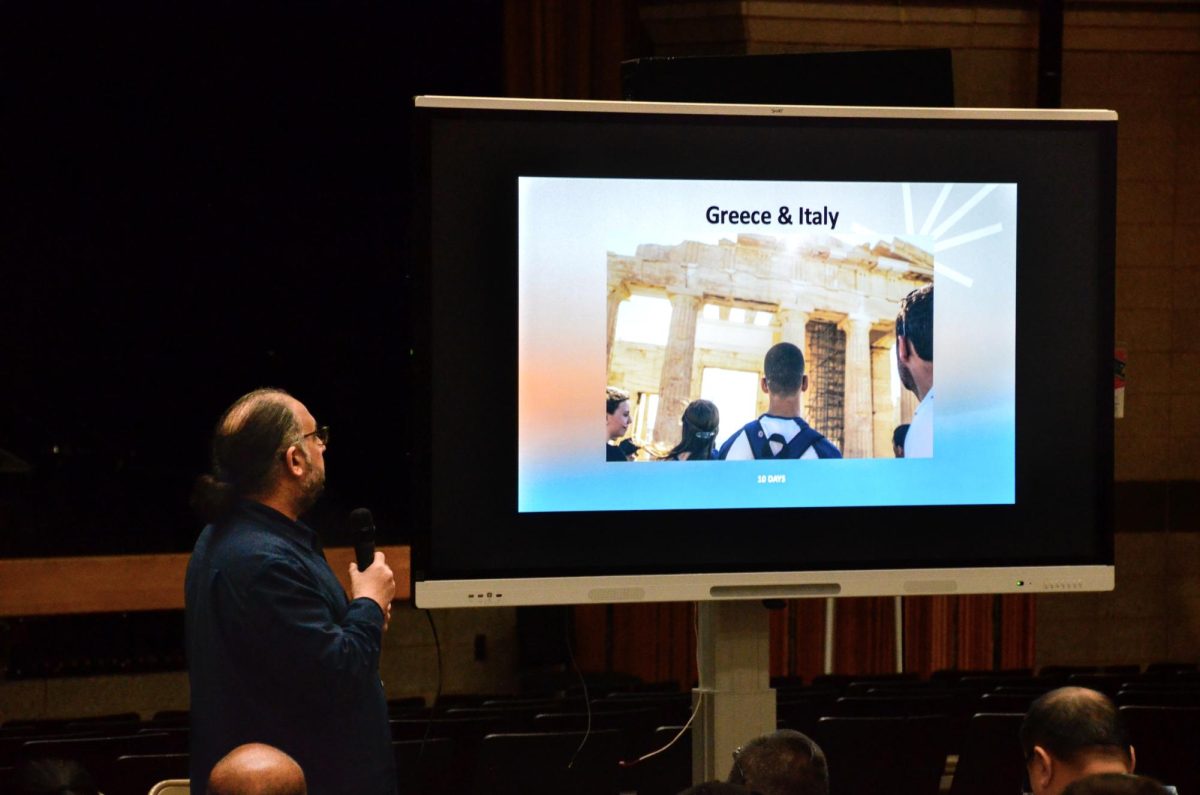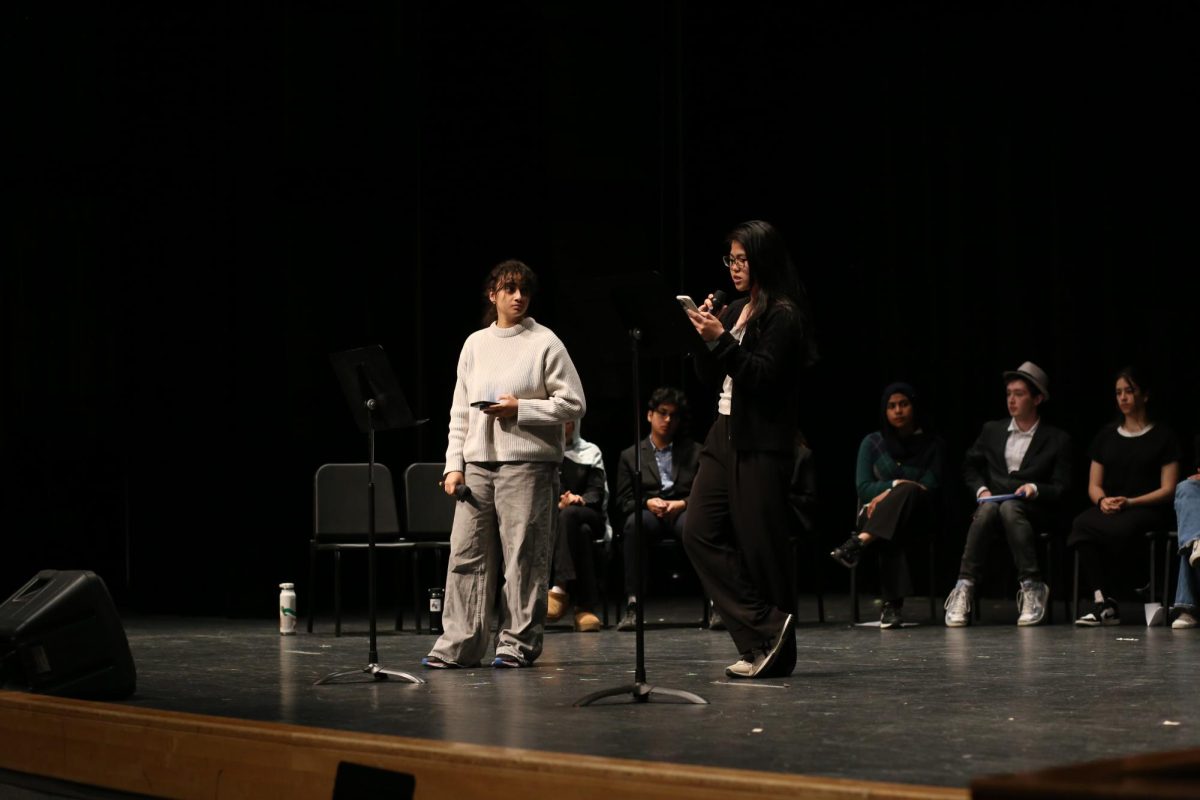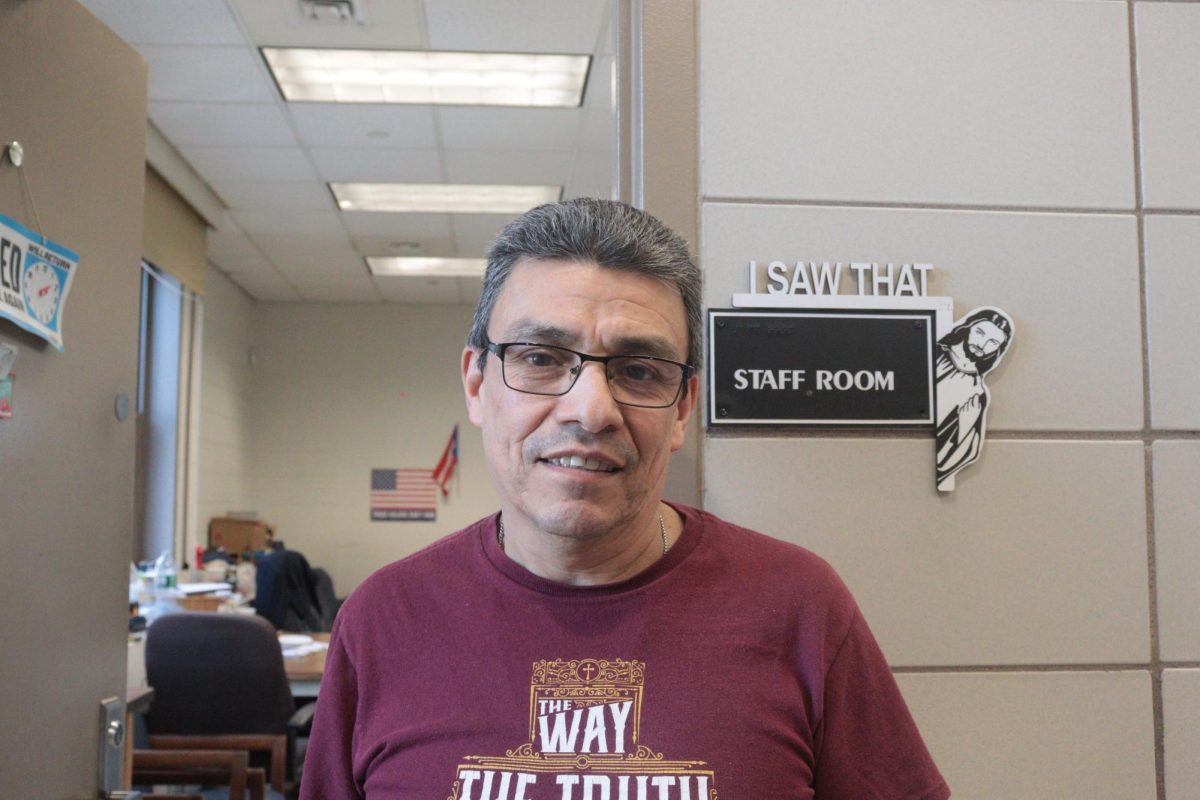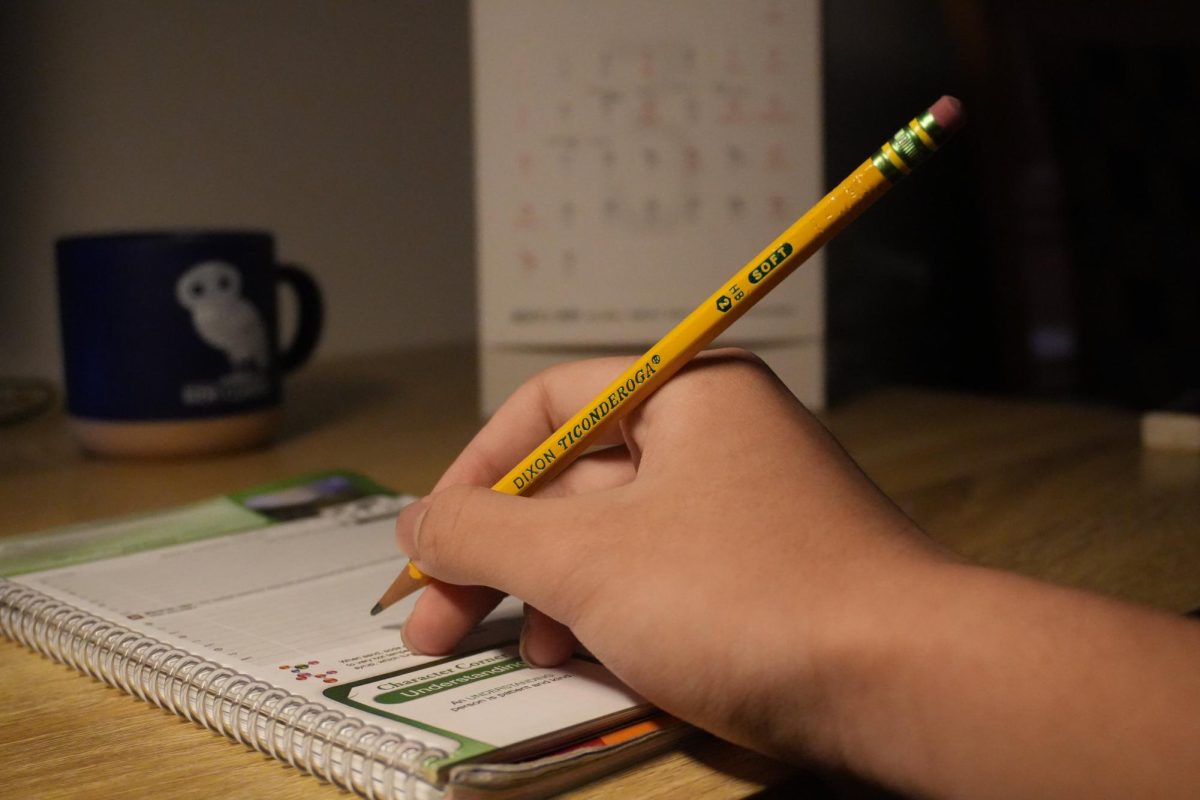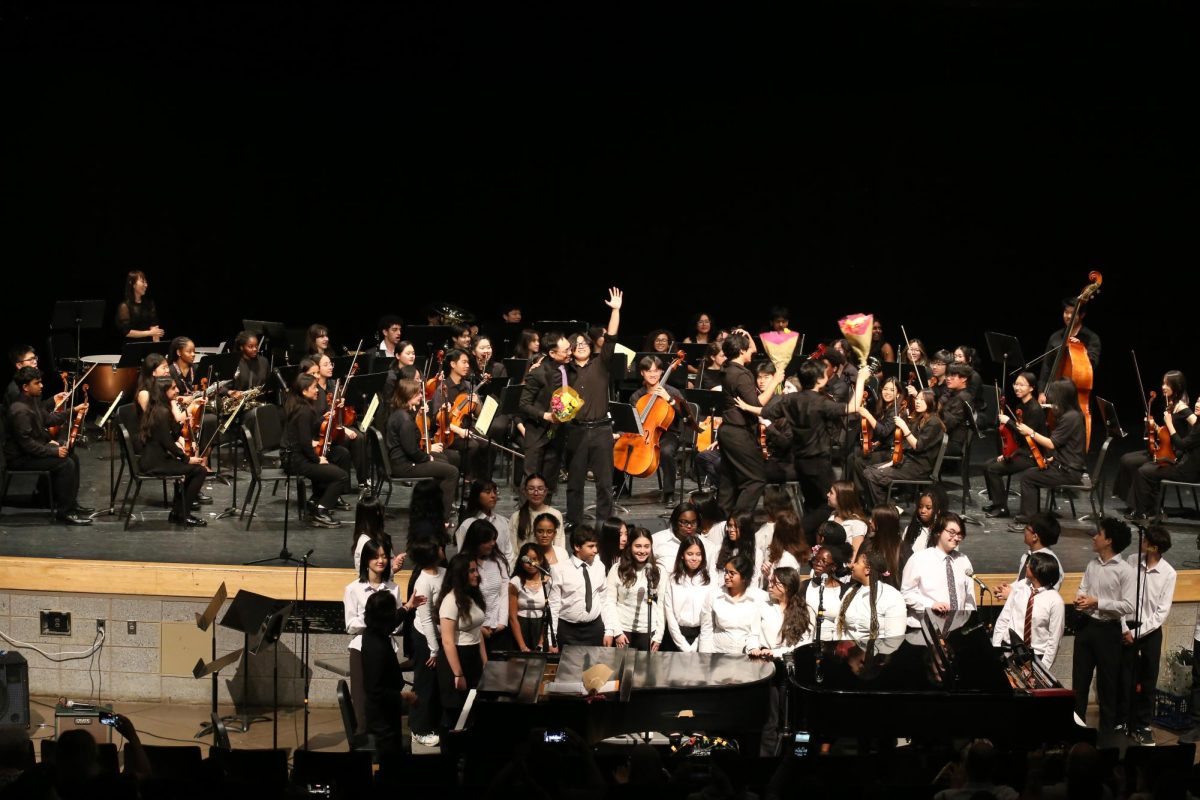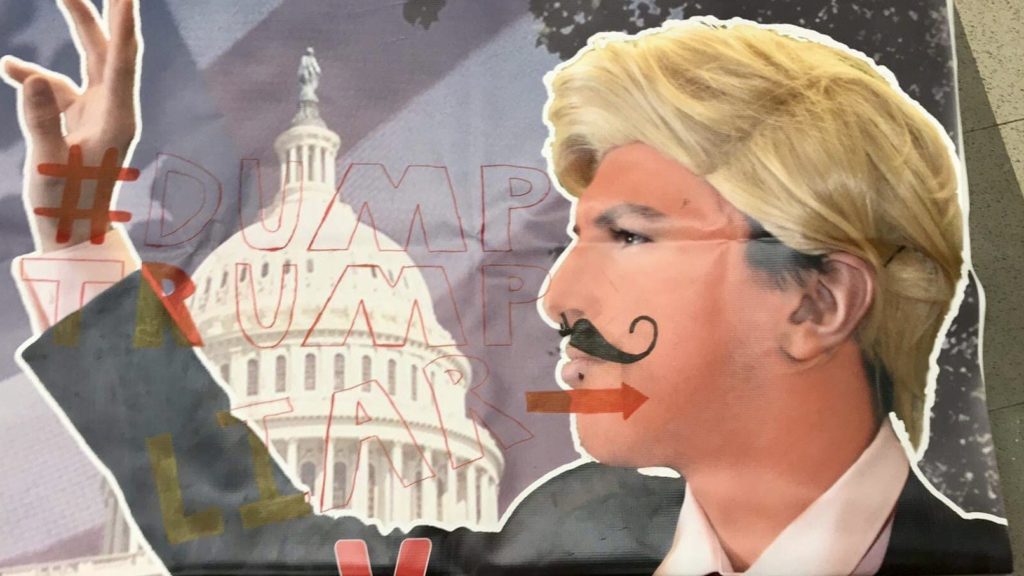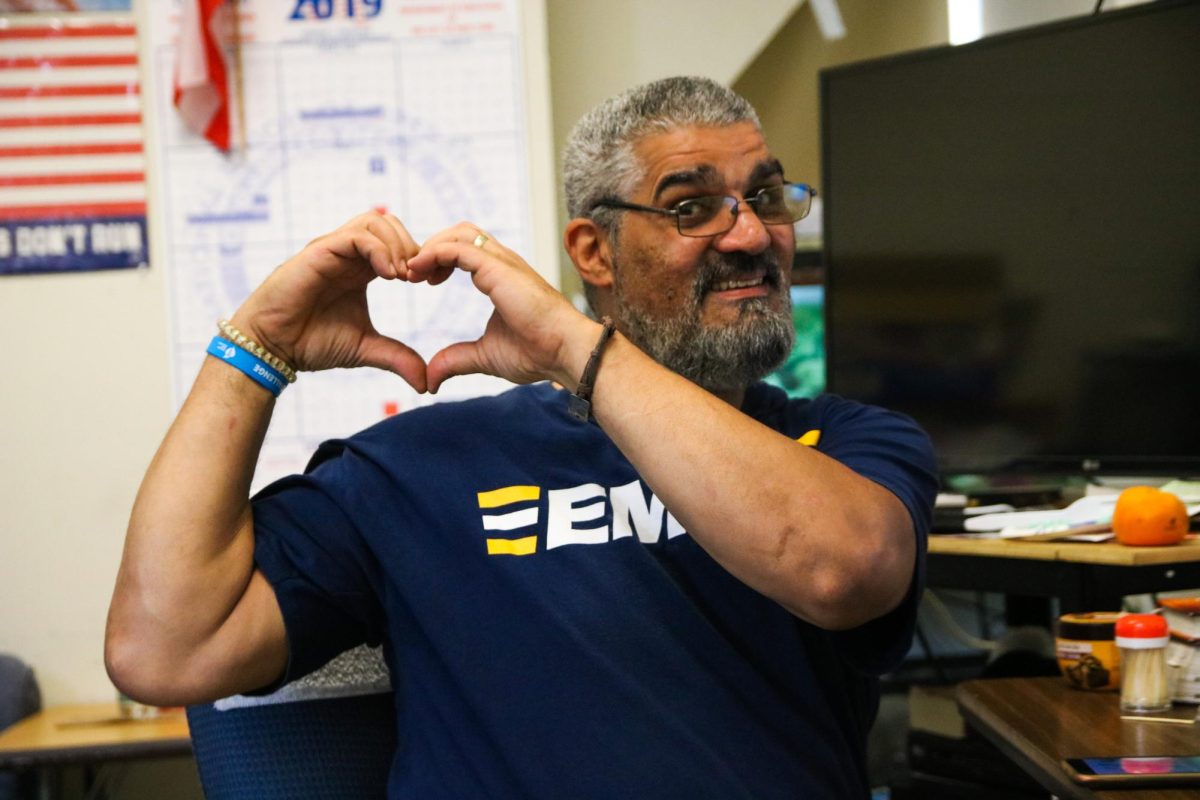
Following a surge of protests against candidates during this year’s Election Simulation, there has been much discussion regarding the line between the simulation and real life.
On Tuesday morning, students were greeted by a vandalized super-sized poster of current president Donald Trump, portrayed by senior Togay Atmaca. The poster, which originally read “Register Red” and “Vote Trump” was vandalized to say “#DumpTrump” and “Liar!” with a mustache and mole drawn onto the candidate’s face.
Members of the Trump campaign view the vandalism as an expression of students’ resentment towards the candidate, not as a personal attack. Togay stated, “My guess is that someone or some group of students took the Election Simulation too seriously.” Nevertheless, he continued, “This vandalism came at my team’s expense. There are better ways to show you disagree with a person.”
This scandal sparked the annual debate over the real point of election simulation: how far is too far?
The Trump campaign took to Instagram, stating, “Although every candidate would like to win, the simulation is more about educating everyone about politics and gaining a greater understanding of the candidates and other aspects of the political system.”
Togay said, “The line is crossed once the student body confuses the student with the candidate… I’m not Donald Trump; I’m THHS Donald Trump, and then two bands later, I’m the kid in your calculus class trying to get through senior year.”
Sophomore Amelia Wiszowaty said, “Some of [the candidates] don’t even believe in what they are saying and people still target them for that…. It’s different. It’s a simulation we’re doing. It’s not the actual politicians.”
History teacher and Election Simulation advisor Nicole Gleizer sees this as an opportunity for students to “learn from the experience and continue to strive to make everyone feel heard and promote practices that can help promote steps in a positive direction.”
“We should allow the simulation to be a model of what we would expect from our political process and not allow negativity from the political process to permeate our positive school culture,” she continued.
Senior Emily Tan, who portrays Jill Biden in the simulation, stated, “Supporters of certain candidates can show their support by voting on Election Day or with positive comments on their social media.”
Freshman Matthew Algenio said, “It’s a simulation; I know you might not have the same viewpoints, but you don’t have the right to vandalize their property.”
The Kamala Harris team issued a statement on Instagram in response to this issue: “I cannot sit back and be complacent with the disrespect some students have towards their campaigns. We are better than this.”
The Trump campaign was not the only campaign affected by acts of protest. Following a viral TikTok, the Biden campaign was faced with backlash from people on the app.
TikTok, which listed some of Biden’s campaign goals accompanied by the song “It’s Up Freestyle,” was met with comments such as “my dog has a better chance to win” and “Trump 2020”. Emily explained, “We had to emphasize that we were students and that our online precede as Biden does not reflect our real-life values to the angry comments.”
In addition, though the actual circumstances are unknown, posters of both the Biden and Sanders campaign have disappeared from the hallways this week.
“The hard work that is displayed by the seniors stems from a true desire to experience politics on a microcosmic level within our school,” said Ms. Gleizer. “Disagreements and conversations are welcomed, and perhaps would be a more beneficial way to address any questions to the candidates or any concerns regarding campaigns.”
Photo courtesy of Katrina Dydzuhn




